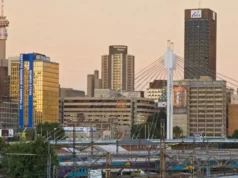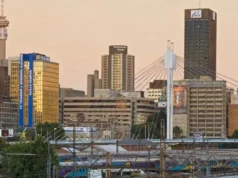In a bid to bridge Nigeria’s electricity gap, the Federal Government has launched an ambitious energy access initiative designed to transform the nation’s energy sector.
The government stated that the program would require $23.2bn, of which $15.5bn would be provided by the private sector.
A statement by the spokesman for the Minister of Power, Bolaji Tunji, revealed that the program, spearheaded by Minister Adebayo Adelabu, is designed to drive sector-wide transformation.
Tunji noted that the initiative is a direct outcome of the recently concluded Mission 300 Africa Energy Summit held in Dar es Salaam, Tanzania.
The two-day summit, which brought together African leaders, business executives, and development partners, was hosted by the Government of Tanzania, the African Union, the African Development Bank Group, and the World Bank Group. It aims to accelerate electricity access for 300 million Africans by 2030.
“Through the energy access program, tagged the National Energy Compact, the government aims to increase electricity access from 4 percent to 9 percent annually, boost access to clean cooking solutions from 22 percent to 25 percent annually, expand renewable energy’s share in the power generation mix from 22 percent to 50 percent, and mobilize $15.5 billion in private investment to drive last-mile electrification,” Tunji explained.
He added that these efforts align with UN Sustainable Development Goal 7, which seeks to ensure universal access to modern energy services.
Unveiling the program, Adelabu said it would expand electricity access, increase renewable energy adoption, and improve clean cooking solutions for millions of Nigerians.
“With 150 million Nigerians already electrified, Nigeria remains committed to ensuring universal access to affordable and sustainable energy by 2030,” the minister said.
Adelabu acknowledged that while the roadmap for expansion is clear, challenges such as vandalism of power infrastructure pose a significant threat to Nigeria’s electrification efforts.
He expressed concern that transmission towers, pipelines, and distribution equipment are being targeted, disrupting supply and discouraging potential investors.
The minister stressed that protecting power assets is crucial to ensuring an uninterrupted electricity supply and sustaining progress. He added that the government is intensifying efforts to curb vandalism through enhanced security measures, stricter penalties, and improved surveillance technologies.
According to him, achieving Nigeria’s electrification targets requires substantial investment, and the government is prioritizing private sector participation to unlock additional resources.
“The compact outlines a $23.2 billion investment target, with $15.5 billion expected from private investors. These funds will be directed towards expanding power generation, strengthening transmission and distribution networks, and integrating distributed renewable energy solutions,” he said.
Recognizing that achieving universal energy access demands collective action, the government called on development partners, philanthropies, and the private sector to join the “transformative” journey.
“By implementing the action plan in the National Energy Compact, Nigeria is positioning itself as a leader in Africa’s energy transition while creating opportunities for economic growth, job creation, and industrialization.
“As the Mission 300 initiative gains momentum, Nigeria’s strong commitment to energy sector reforms, infrastructure expansion, and investment mobilization will be crucial in shaping the future of electricity access across the continent,” he added.
The PUNCH reports that despite having a population of over 200 million, Nigeria still struggles with just 4,500 megawatts of electricity.
Efforts made in 2024 to ramp up power generation to 6,000 MW were unsuccessful due to vandalism and frequent grid collapses.
At present, over 250 companies and institutions have opted out of the national grid, generating their own electricity instead.










